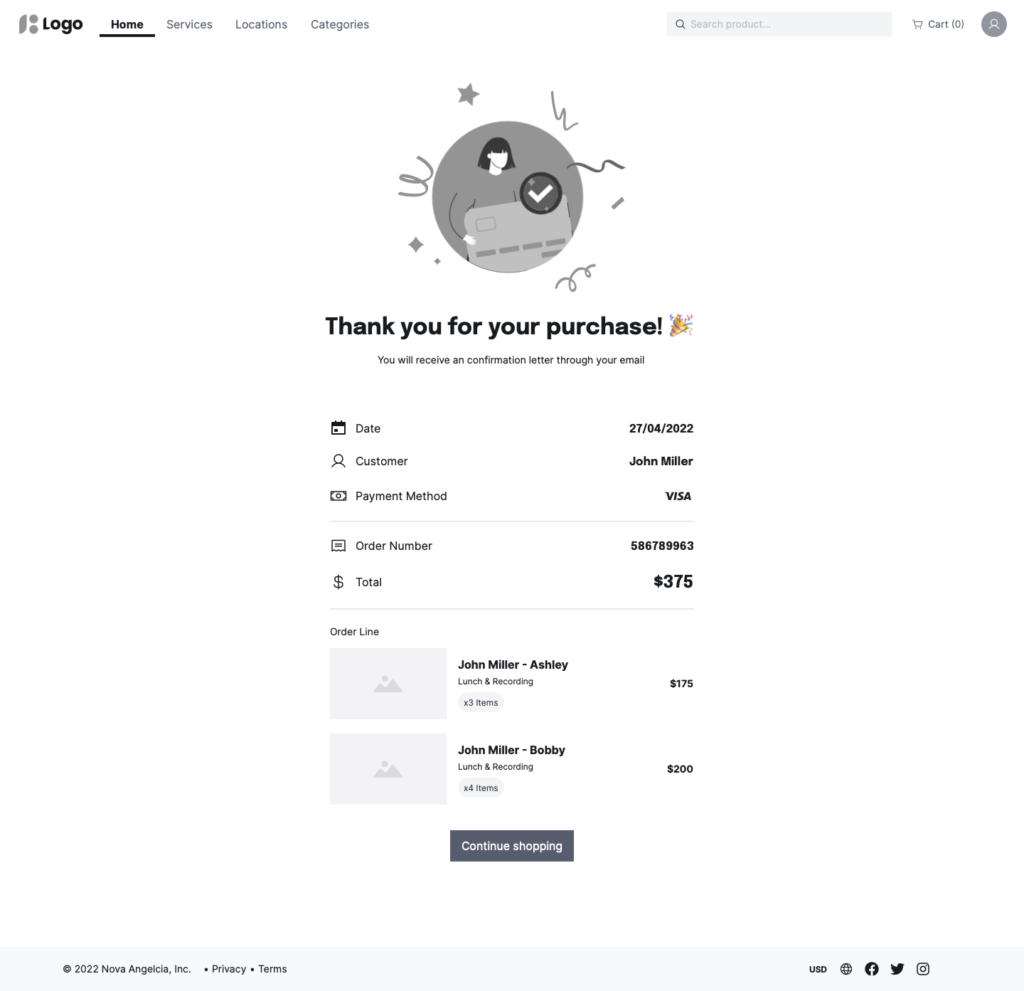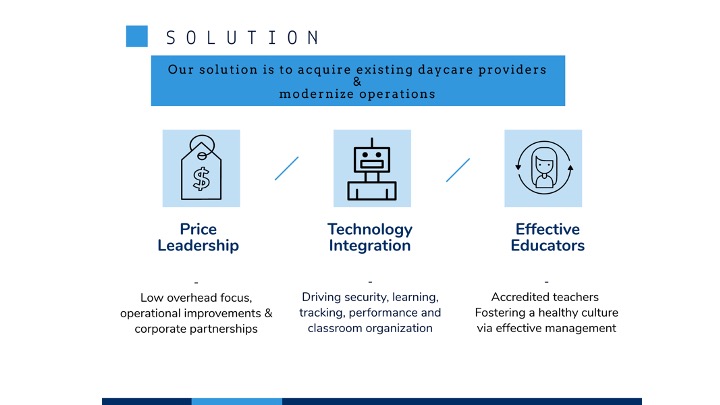Nova Angelica - Case Study
An exploration for the daycare- business, Nova Angelica.
Nova Angelica, a daycare service provider focused on high-quality education and childcare, seeks to expand its market share by developing a robust online web presence.
By focusing on user needs and incorporating feedback, the platform aims to increase user engagement and satisfaction, ultimately leading to increased market share.
1. Research & Understanding
I wanted to start by understanding how Nova Angelica positions itself. I’ve attached some statements below that stuck out to me.
User Interviews: Conducted in-depth interviews with different parents to understand their desires, preferences, and pain points when seeking childcare services online. I then spoke to caregivers and managers to understand how the industry operates.
Competitor Analysis: Analyzed competitors' online platforms to identify industry best practices and areas for improvement. Created a SWOT analysis to assist with understanding the company's current position.
Usability Testing : Performed usability tests on the platform's prototype with target users to identify potential issues and gather feedback.
2. Key Findings:
The research revealed some critical factors that influence user satisfaction with the platform. These included the importance of a clean and organized interface, security, and privacy concerns when dealing with sensitive information, the value of educational resources for both children and parents, and the need for straightforward booking and payment systems.
3. Recommended Solutions:
Based on the key findings, a few improvements were proposed:
1. A responsive, user-friendly design with a clear navigation menu that works seamlessly across web and mobile devices.
2. A secure parent portal that allows users to access information about their children's progress, schedules, and other essential details. The additional option is opting into a live feed so parents can monitor their children in the class.
3. Podcast option for parents and providing caregivers a list of industry-relevant training courses and certifications to become experts within the industry.
4. Implemented a streamlined online booking and payment system that simplifies the process for parents.
5. Addressing data privacy and security concerns by ensuring compliance with relevant regulations and employing robust security measures.Updating the ToS to accompany and provide a simple infographic on the company's security policy to provide for parents/guardians along with direct contact in case of an emergency.
4.Trade-offs
Resource allocation: Developing new features, such as the parent portal and podcast options, may require reallocating resources from other areas of the business, which could impact other projects or initiatives.
Potential increase in costs: Implementing robust security measures and compliance with regulations may lead to increased costs for the company. However, these costs can be justified by the increased trust and user satisfaction they provide.
Time to market: Enhancing the platform may take time, leading to a delay in the launch of the redesigned platform. The company must balance the need for thorough development with the desire to bring the new platform to market quickly.
5. Risks
User adoption: Despite the improvements, there is a risk that users may not adopt the new features as expected, leading to a lower return on investment for the project.
Security breaches: Even with robust security measures in place, there is always a risk of a security breach, which could damage the company's reputation and customer trust.Technological issues: Implementing new features may introduce technical issues that could disrupt user experience and lead to dissatisfaction.
6. Metrics for Success
User satisfaction: Monitor user satisfaction with the platform improvements through surveys and feedback forms to gauge whether the changes are positively impacting the user experience.
Increase in platform usage: Track the number of users actively using the platform and the frequency of their interactions with the new features to measure their adoption and engagement.Customer retention: Measure the percentage of users who continue to use the platform after the redesign. High customer retention rates would indicate that the platform improvements are successfully meeting users' needs.
Conversion rates: Monitor the increase in online bookings and completed payments resulting from the streamlined booking and payment system.
Compliance and security: Ensure adherence to relevant data privacy and security regulations and track the number of security-related incidents to assess the effectiveness of the implemented security measures.
7. Premortem: What is the most likely cause of failure if this fails?
The most likely cause of failure for Nova Angelica's new platform rollout, if it fails, would be poor user adoption and dissatisfaction due to an inadequate understanding of user needs and expectations.
Factors that could contribute to this:
To mitigate these risks and increase the likelihood of success, it is essential to invest in thorough user research, usability testing, effective communication, and support during the rollout process. Moreover, having a robust quality assurance process and a contingency plan in place to address any unforeseen issues can help ensure a smooth transition and positive user experience.
8. Rollout plan? What if it goes badly during rollout?
A carefully planned rollout strategy is crucial to minimize any negative impact during the launch of the new platform. Here are my recommended steps
1.Phased rollout: Begin with a phased rollout, where the platform improvements are launched to a small percentage of users initially. This will help identify any unexpected issues or problems before deploying it to the entire user base.2.Beta testing : Invite a group of users to participate in beta testing the new platform. This will allow Nova Angelica to gather feedback, identify any issues, and make improvements before a full-scale launch.
3.Communication: Clearly communicate the changes and benefits of the new platform to users in advance. Provide tutorials or guides on how to use the new features to ensure a smooth transition.
4.Support: Establish a dedicated support team to address any issues or concerns users may have during the rollout. Make it easy for users to provide feedback and report issues, and ensure a timely response.
5.Monitoring and analysis: Continuously monitor the platform's performance, user engagement, and feedback. This will help identify potential issues and areas for improvement early in the rollout process.
In the event of a negative outcome during the rollout:
9. Visuals




Nova Angelica's online platform has made it so much easier for us to monitor our child's progress and daily activities. The live feed option gives us peace of mind knowing that our child is safe and well cared for.
Yessica H. Staffing Coordinator at Dekalb County Hospital